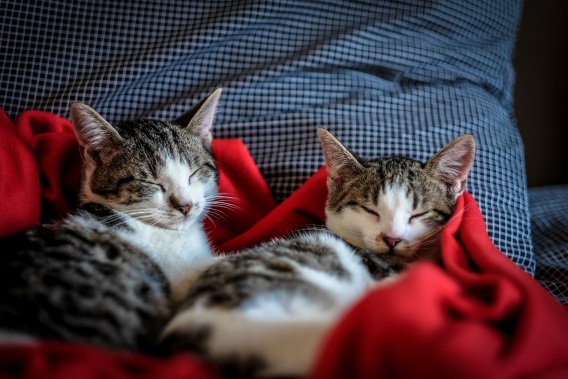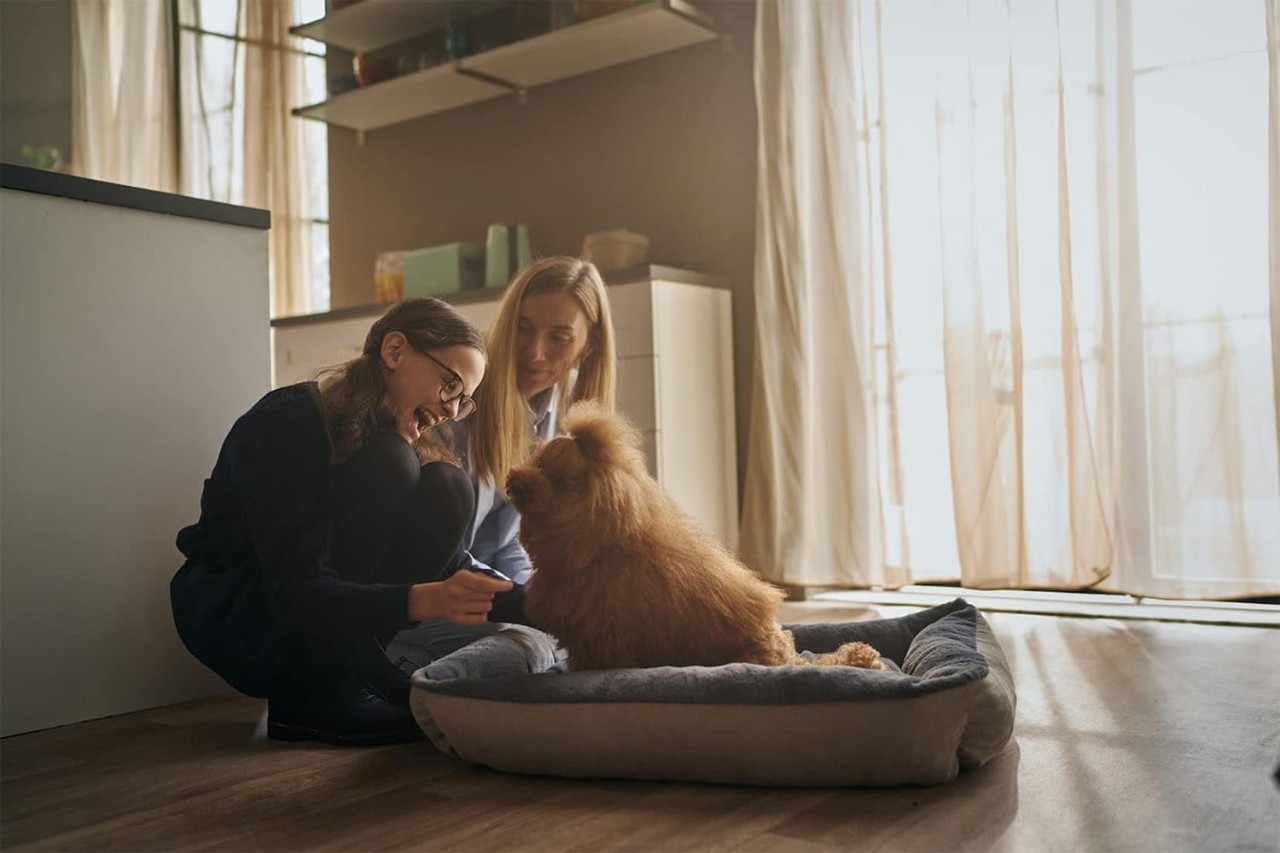by Angela Hickey | 2 min read | August 2023
Stress related illnesses occur quite often in cats, so it’s important to be aware of their basic needs to make sure they are being met. It's also useful to be able to recognise behavioural changes in your cat that indicate that they are stressed.
Your Cat’s Basic Needs
- Space – Cats feel safer if they can climb to a high vantage point to survey the scene below! Provide shelves at different heights and clear the tops of cupboards so your cat can gain access.
- Sufficient Resources – Cats need separate places in the home for food, water, toileting, and rest, especially if there is more than one cat sharing these resources. A good rule is to provide a resource for each cat in the household and then one extra to allow for choice if two cats do not get along.
- Normal Behaviours – Your cat needs opportunities to perform behaviours natural to them, including clawing, hunting and playing.

Clawing is necessary to stretch their muscles after sleep, to mark their territory, and to sharpen their claws. Clawing posts can help near rest areas, cat doors, and in living rooms (to avoid scratching at furniture).
Cats in the wild spend up to 6 hours daily hunting for prey, especially in the early morning and evening. These are perfect times to encourage interactive games with fishing toys and laser pointers. Keep a box with a wide selection of furry, feathered, noisy, and rapid moving toys which can be scattered in the house daily to encourage play. Cats get bored quickly so brief (10 minute) but frequent play times tend to be the most beneficial.
Activity feeders are another great way to enrich your cat’s environment. Working at getting their food from the feeder helps keeps them mentally stimulated and physically active, with the reward of food for their efforts.
- Privacy - Cats need privacy and alone time, so provide choices for different resting and feeding places so that they can vary the amount of contact they have with each other depending on their mood. Covered litter trays will help, as well as empty baskets or cardboard boxes at different heights to rest in, and food bowls on high shelves. Also make sure that other cats do not threaten your cat by entering your home or even staring in windows! A cat’s home needs to feel very safe and private.
Signs of Stress in Cats
Cats can become more passive, inactive, and introverted when they’re unhappy. They may hide and avoid interaction. They may hesitate to approach feed bowls and litter trays, urinate in inappropriate places, or display antisocial behaviour such as nervousness, startling easily, and hissing and spitting at other cats that approach their food or litter. They may also groom excessively, leading to bald or sore patches. This may begin as an attempt to self – soothe, but may become compulsive and cause skin problems. Their stress can even cause reoccurring infections as it can impact their immune system.
What to do if Your Cat is Stressed
You may need to speak to your vet and/or a Behaviour Specialist - a behaviour assessment may be needed to explore more complex issues affecting your cat. A full physical check up should be carried out initially as pain, due to arthritis for example, may be limiting your cat’s access to resources (read more on avoiding stress when taking your cat to the vet here). The relationship dynamics between different cats, other pets and other members of the family will also need to be assessed to establish the cause of the stress and seek a way to put your cat at ease in your home and avoid stress related illnesses.
*This guidance is for general information purposes only. Allianz accepts no responsibility or liability for any losses that may arise from any reliance upon the information contained in this guidance.
Information correct as of date of publishing. This blog will not be updated or edited so the information may become outdated.






